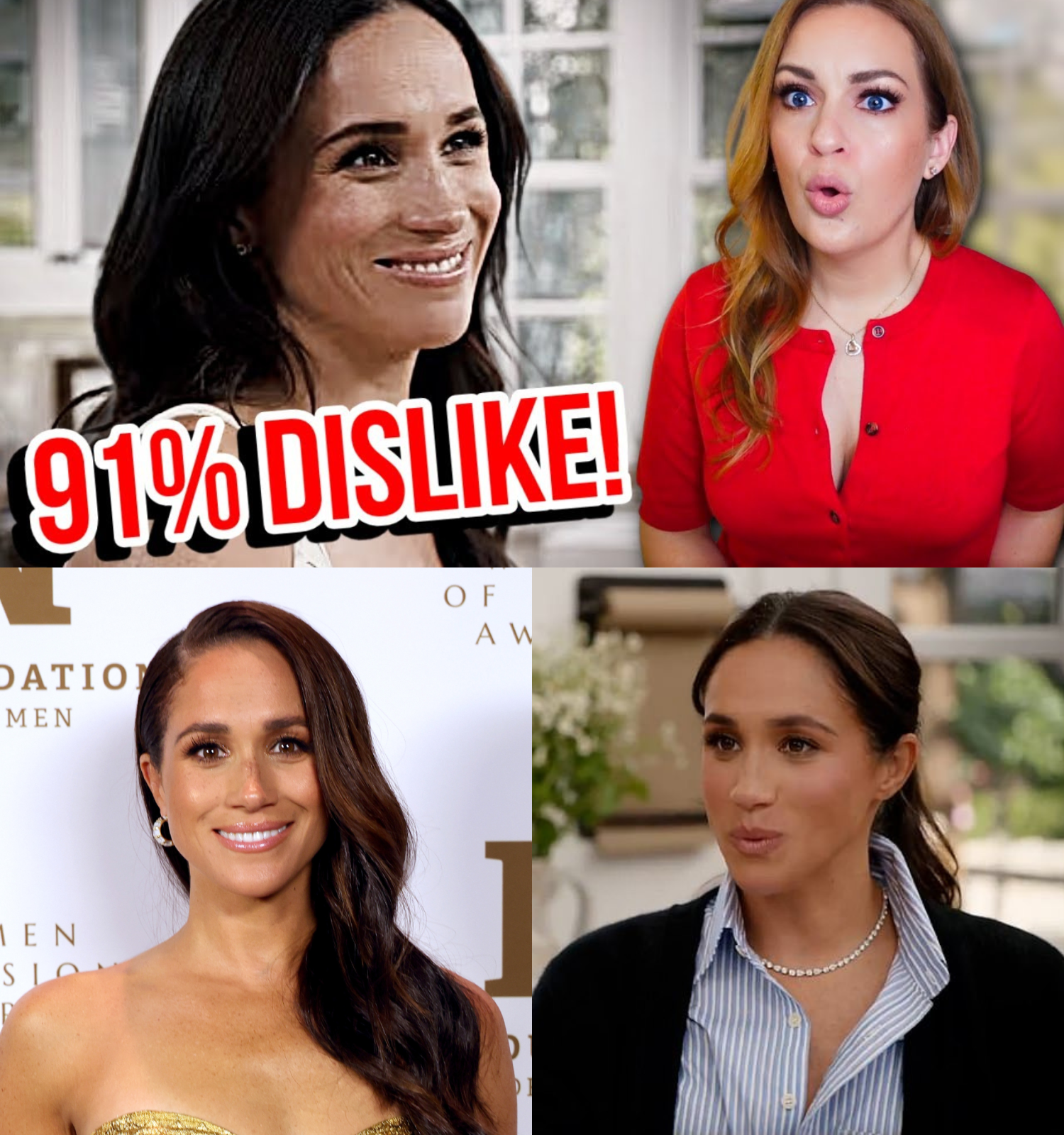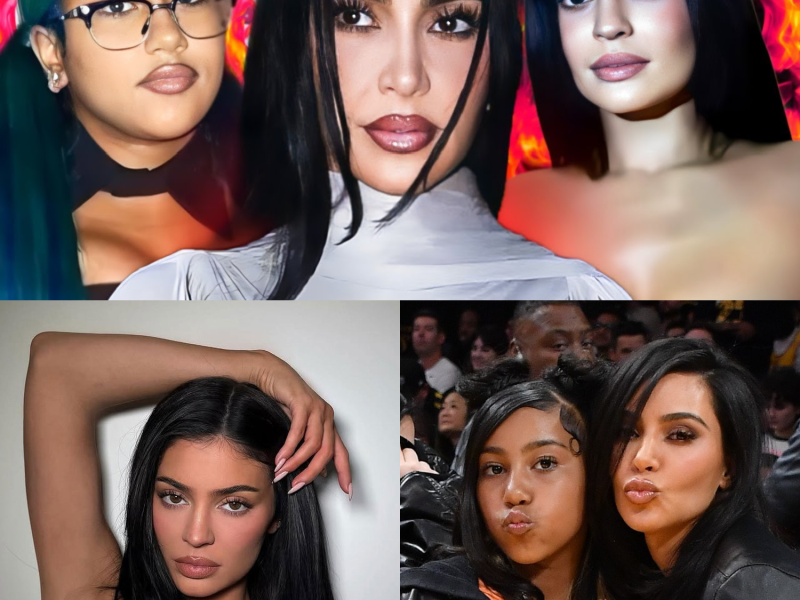WITH LOVE MEGHAN Season 2 BOMBED: Why Meghan Markle’s Brand May Be Over
Meghan Markle once stood at the confluence of modern feminism, royalty, and Hollywood stardom. As a vocal champion for gender equality, she delivered stirring speeches—from the Royal Foundation Forum to International Women’s Day—resonated deeply with global audiences. Her former lifestyle blog, The Tig, celebrated authenticity, social consciousness, and personal exploration. But her Netflix series With Love, Meghan, especially Season 2, has been met with a chilly reception—and some say it signals a deeper downturn in the viability of her brand.
1. The Authenticity Gap: A Lifestyle Show That Feels Fake
One of the most repeated critiques is the show’s lack of authenticity. The Daily Beast slammed Season 2 as “carefully curated inauthenticity,” noting that the content feels repackaged—much of it is not newly filmed but recycled from Season 1 with updated credits. The stylized set, staged interactions, and awkward tone swings (from garden whimsy to raw seafood prep) further erode a sense of spontaneity The Sun+15The Daily Beast+15Monsters and Critics+15News.com.au+2Monsters and Critics+2.
Meanwhile, The Independent blasted viewing the series as akin to “being gaslit by a multimillionaire,” with aspirational hostessing that leaves most viewers feeling inadequate The Independent+1.
2. Critics Called It Tone‑Deaf and Over‑Polished
Reviewers widely condemned the show as tone-deaf. A New York Post critique insisted Markle’s pivot to lifestyle influencer felt inauthentic and overly controlled—aiming for perfection and polish at the expense of emotional warmth. It likened her to a version of Gwyneth Paltrow without the playful self-awareness or campiness that makes Goop oddly engaging New York Post.
Celebrity chef Jameson Stocks, who cooks for British royals, was blunt: the show is “staged and fake,” and Markle lacks any real cooking skill—he called her a “poor imitation of Martha Stewart.” He suggested she focus on returning to acting instead New York Post.
3. Viewership Plummeted — It Bombed on Netflix
From a viewership standpoint, the series sputtered. It ranked just 383rd among Netflix’s most-watched shows in the first half of 2025, with a modest 5.3 million global views—less than many older reruns New York Post+15Decider+15Wikipedia+15. Rotten Tomatoes scores hovered in the 36–38% range, reflecting broad critical and audience dissatisfaction Forbes+1.
This weak performance is particularly striking given that some shows with significantly higher viewership were cancelled—prompting speculation that the show’s continuation may hinge more on reputation equity than audience demand Netflix Junkie.
4. A Strained Brand Beneath the Surface
“Bombed” isn’t just about ratings—it speaks to the deeper unraveling of Meghan’s once-powerful brand. News.com.au noted how far she’s fallen from her earlier feminist identity; Season 2 leans into domesticity—baking, crafting, lifestyle—as if opting out of activism despite Archewell still supporting gender-equality efforts News.com.au.
Adding to the strain are controversies around her broader lifestyle brand, As Ever. The venture has faced plagiarism accusations over its logo and criticism for derivative products like raspberry jam Vogue+15The Sun+15Decider+15.
An insider revealed the multi-million dollar Netflix deal is not being renewed, effectively marking the end of these high-profile streaming ambitions—partly due to this show’s underperformance, both creatively and commercially The Sun+1.
5. Even Guests Went Awkward
The facade of charm cracked during one episode when guest mixologist Payman Bahmani-Bailey shrugged off Meghan’s question about her former drama Suits by saying he doesn’t watch “basic cable shows.” It was an uncomfortable moment, briefly humanizing a series otherwise drenched in polish Page Six.
6. Rebranding Misfire: From Influencer to Lifestyle Queen Gone Wrong
Meghan’s attempt to rebrand as a domestic guru—to reflect modern femininity through hosting and self-care—might have sounded promising. However, critics see this as a retreat, a shift into a bubble of curated perfection that contradicts her previous identity as a fiery advocate. It’s a pivot that feels less transformative and more retreating—a brand strategy that feels out of touch in 2025 News.com.auNew York PostThe Daily Beast.
7. Industry Experts See a Decline, Not a Transition
Experts unflinchingly criticise the trajectory. One commentator lamented that, after leaving the royal family, Markle “regressed” into a life centered around a banal cooking show—which they described as “sad” and anticlimactic The Sun.
Others see her media ventures— from the Netflix series to her products—as falling short of the expectations her public profile once commanded thesun.ieThe Sun.
8. The Brand is Over? Perhaps — Or Just in Retreat
To say the Meghan Markle brand is over isn’t necessarily hyperbole—it reflects a sharp decline in relevance and resonance. Her influence, once rooted in authenticity and social advocacy, has slipped into carefully orchestrated content that lacks spark, urgency, or genuine connection.
While she still commands coverage, streaming platforms have less confidence in her star power—and audiences appear disengaged. The brand isn’t dead… yet—but it’s no longer firing on all cylinders. It perceptibly limps behind her earlier influence and intention.
Conclusion
With Love, Meghan Season 2 wasn’t just critically and commercially unsuccessful—it represented a miscalculated repositioning of a public figure whose core appeal rested on conviction and candor. The show serves as perhaps the clearest sign yet that Meghan’s shift into lifestyle celebrity has faltered—and with it, much of what once made her brand compelling has eroded.


